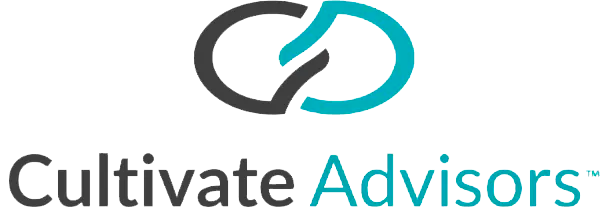
Learn key tactics for improving communication with your team to create a stronger culture, better relationships and a well-balanced work environment
Contributed by NAWBO partner Cultivate Advisors
Communication is an essential skill that often goes unappreciated. Yet, good communication is vital, especially when operating in a digital world. Effective communication allows you to express yourself and helps improve both your personal and professional relationships.
If you’ve ever worked in an environment where communication was lacking, you likely experienced misunderstandings, missed opportunities, conflict, the spreading of misinformation and mistrust.
Whether you’re leading a team, coordinating with peers or working with potential customers, having clear lines of communication builds trust, increases productivity and creates an engaged culture.
What Is Effective Communication?
Effective communication involves many active skills, such as speaking, writing, reading and listening. Whether at a job interview, a team meeting, addressing a client email, a consumer experience or even dealing with our own family and friends, these are the key skills that drive our interactions as we communicate with others.
Being an effective communicator means being able to both actively listen and clearly express yourself. Unfortunately, no one skill or technique will make you a better communicator. Instead, effective communication requires a diverse skill set that covers both verbal and nonverbal communication cues, as well as active listening.
How to Improve Your Communication Skills
There are several skills you can develop to be a more effective communicator. By incorporating these key skills, you can create a strong culture, strengthened relationship and a well-balanced work environment.
- Set proper expectations. Expectations are a vital component of effective communication. Often, when there is a misunderstanding, it stems from a lack of expectations on both sides. Whenever you’re working with someone else, you must develop and set clear expectations upfront. Setting proper expectations and following through on those expectations builds credibility and trust, which is the foundation of any relationship.
- Develop communication rules. Communication rules are a set of rules you create for yourself that let people know the best way to get in touch, whether by phone, email or text. Establishing these rules is vital to your productivity, as well as your sanity. The more guidance and boundaries you provide, the fewer misunderstandings or missed connections will occur, and the more smoothly work can stay on track. This is particularly important if you and your team operate on different schedules.
- Practice active listening. Listening is the key to effective communication. Active listening means engaging with what people say so that they feel heard. A few ways to develop your active listening skills include by maintaining eye contact, giving affirmative replies, validating what you heard and asking follow-up questions to show that you are paying attention.
- Practice healthy conflict. Conflict is inevitable. And over time, conflict manifests and compounds. The pressure builds until it erupts at a breaking point and emotions flare, leading to a full-blown melt-down. You can resolve conflict quickly by learning to address it when it arises. Acknowledge the situation, validate concerns, ask questions and collectively brainstorm a solution. Learning to resolve conflict in a healthy way allows both parties to express frustration while strengthening relationships and moving forward constructively.
- Practice public speaking. Public speaking is one of the most effective ways of developing your communication skills and leadership skills. Great communicators can clearly articulate their message, whether they’re speaking to a large group or talking face-to-face to one other person. Regularly speaking in front of a group will magnify your strengths and weaknesses and force you to develop excellent communication habits.
Developing these key areas of communication will help you to communicate, create stronger relationships and build better, more effective teams. But these are just a few of the skills the best communicators have; if you’re interested in developing your skills further, the Impactful Communication Series can help you dive deeper into each of these areas and show you how they all work together to help you communicate effectively as a leader.

